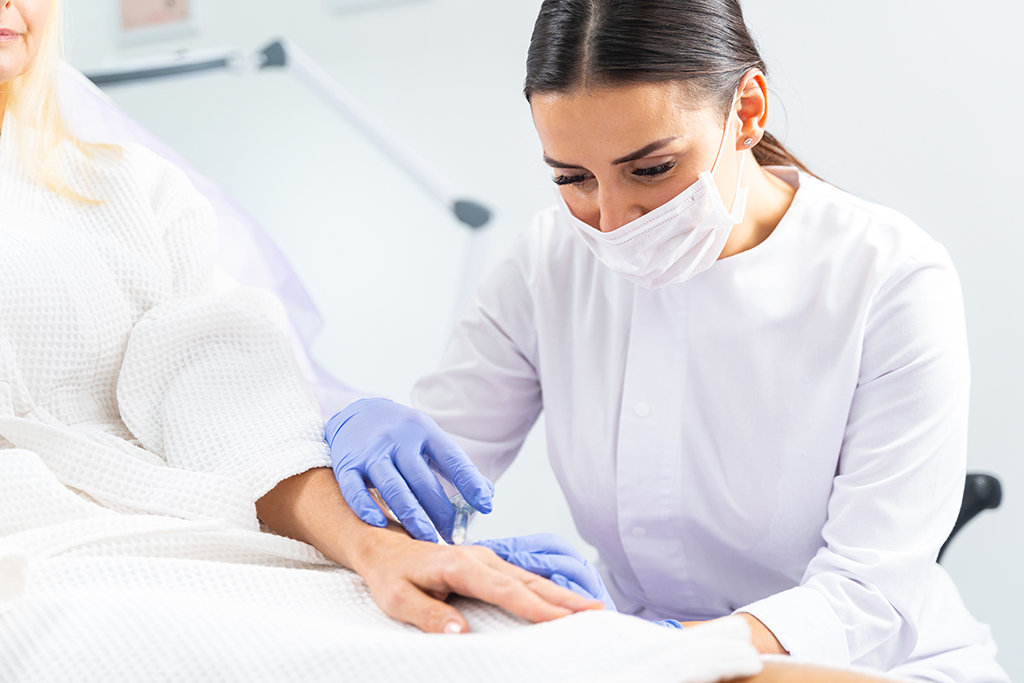
Photo by YAKOBCHUK VIACHESLAV at Shutterstock
Preference for natural and organic products is an ongoing trend in Southlake, TX, and across the country. The ill-defined terms natural and organic are often used interchangeably. Certified organic products in the United States must meet stringent requirements, but general discussions of organic beauty treatments usually have nothing to do with legal definitions.
A belief that natural treatments and products are always better can have negative consequences. Consulting a dermatologist for skin care advice is safer and more effective than random information from questionable online sources. Trending natural beauty recommendations can be slightly effective, completely ineffective, or actively harmful to your skin and overall health.
Lemon and Lime Juice
Another common natural beauty trend is squirting lemon or lime juice on skin blemishes, such as acnes scars or areas of hyperpigmentation. Acidic fruit juices have some exfoliating properties, but they can’t lighten dark spots or remove scar tissue. Lemon or lime juice burns when it is placed on open areas, such as small cuts or inflamed acne.
Highly concentrated acidic preparations can cause second-degree burns on delicate skin. Substances called psoralens in lemons and limes can trigger a phototoxic reaction upon exposure to UV light. This means you could end up with a phytophotodermatitis rash resulting in large, painful blisters that can take more than a month to heal. Consult a dermatologist immediately if you’re experiencing a rash or any other symptoms after exposure to sunlight.
Cinnamon
Cinnamon has even become part of the natural beauty trend. This spice is most notably associated with the ‘cinna-mask,’ along with claims that it purifies skin. Unfortunately, this particular trend can have painful results. Cinnamon is an irritating substance almost guaranteed to cause a slight burning sensation and mild redness.
Reactions can go beyond mild irritation into actual burns, which easily turn into facial scarring. Some spices, including cinnamon, have antimicrobial properties, but spices used in wound healing are carefully handled and prepared. Dried cinnamon and cinnamon oils are too harsh to use undiluted, and many people can develop an allergy to cinnamon. Even people that have eaten cinnamon safely all their lives can experience hypersensitivity to a spice directly applied to skin.
Apple Cider Vinegar Cure-All
Apple cider vinegar is recommended for everything from housecleaning to managing medical conditions in the world of natural remedies. Proponents of apple cider vinegar in skin care claim that it heals acne, relieves blemishes and scars, cures warts, and makes moles disappear.
Vinegar is acidic and quite caustic if it isn’t diluted. Long-term use on skin can lead to inflammation and burns. Never apply vinegar to wounds. Its corrosive properties will cause pain and damage tissue in the wound bed. The most serious concern is letting illnesses or disorders go untreated due to belief in vinegar’s greatly exaggerated curative properties.
You should always see a dermatologist if you’re concerned about a mole. A biopsy may be necessary for suspicious moles, and dermatologists in Southlake, TX, offer plenty of options to remove moles and treat warts.
Oil and Alcohol
Suggestions for natural moisturizers making the rounds include olive oil, coconut oil, and even mayonnaise. These substances probably won’t cause any harm, unless someone has an allergy, but slathering thick, fatty oils on your face can clog pores and lead to acne. Make an appointment with your local dermatologist to ask about helpful, safe products.
On the other hand, alcohol wipes and even rubbing alcohol have been suggested for oily skin. Applying alcohol to your face is just a bad idea the entire way around. It certainly will cause dry skin, but this is not a good outcome. Alcohol is too harsh and strips skin of protective fatty acids and protein. Destruction of beneficial lipids and proteins leaves skin in a fragile, weakened state that is prone to inflammation and infection.
Beneficial Natural Substances
Of course, many natural substances do have beneficial properties. Common natural ingredients found in skin care products include aloe vera, argan and avocado oil, chamomile, rose hip oil, green tea, and shea butter. The way these substances are prepared, handled, and used plays a large role in their effectiveness. Everyone’s skin is different.
Sometimes visible, obvious skin issues, such as acne, dryness, inflammation, or dark spots, have an underlying cause. Treating symptoms without addressing their cause is not effective in the long run. Consult your dermatologist to discuss skin health concerns. If you want to use natural remedies alone instead of prepared products, ask your dermatologist how to do so safely.
Consult Compassion Dermatology to keep your skin healthy and smooth. An experienced, professional dermatologist can help you find appropriate products and develop healthy skin care routines so your skin glows.


